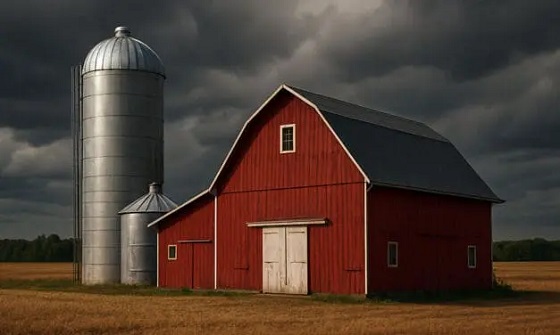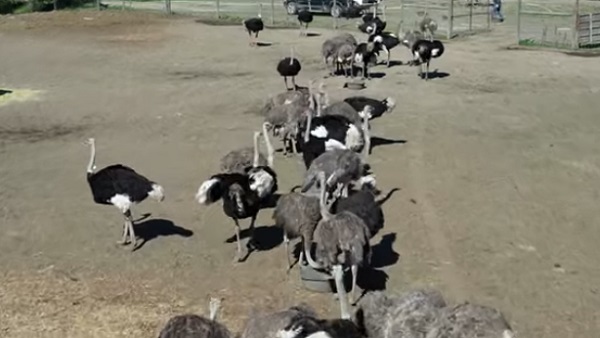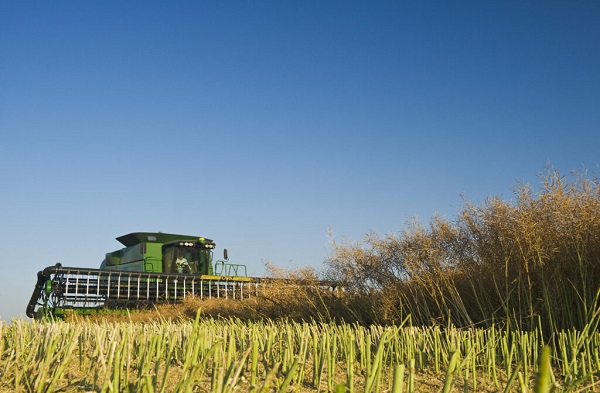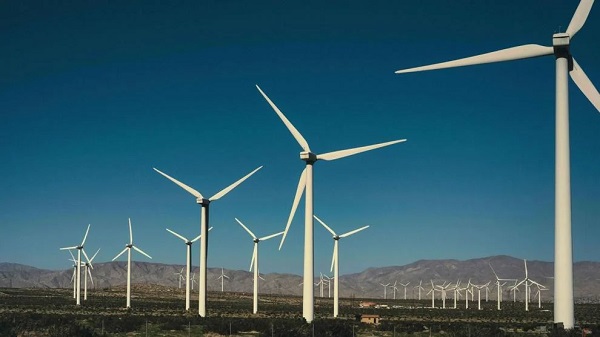Agriculture
Liberal win puts Canada’s farmers and food supply at risk

This article supplied by Troy Media.
A fourth Liberal term means higher carbon taxes and trade risks. Could Canada’s farmers and food security be on the line?
The Liberal Party, now led by Mark Carney, has secured a fourth consecutive term, albeit once again with a minority mandate. This time, however, the Liberals have a stronger hand, as they can rely not only on the NDP but also the Bloc Québécois to maintain power.
This broader base of parliamentary support could provide much-needed political stability at a crucial time, particularly as Canada prepares for a new round of trade negotiations with the United States and Mexico.
For the agri-food sector, the implications are significant. From carbon taxes to trade rules, federal decisions play a decisive role in shaping the costs and risks Canadian farmers face.
First and foremost, carbon pricing will remain a central issue. Carney has made it clear that the industrial carbon tax will stay—a policy that continues to erode the competitiveness of Canada’s agri-food sector, where fuel, fertilizer and transportation costs are especially sensitive to carbon pricing. The tax, currently set at $95 per metric tonne, is scheduled to climb to $170 by 2030.
While consumers may not see this tax directly, businesses certainly do. More concerning is the Liberals’ intention to introduce a border carbon adjustment for imports from countries without equivalent carbon pricing regimes. While this could theoretically protect Canadian industry, it also risks making food even more expensive for Canadian consumers, particularly if the U.S., our largest trading partner, remains uninterested in adopting similar carbon measures. Acting alone risks undermining both our food security and our global competitiveness.
Another looming issue is supply management. Although all parties pledged during the campaign not to alter Canada’s system for dairy, poultry and eggs, this framework—built on quotas and high import tariffs—is increasingly outdated. It is almost certain to come under pressure during trade negotiations. The American dairy lobby, in particular, will continue to demand greater access to Canadian markets. The Liberals have a chance to chart a more forward-looking path. Modernizing supply management could lead to a more competitive, resilient industry while providing consumers with greater choice and better prices.
The previous Parliament’s passage of Bill C-282, which sought to shield supply managed sectors from all future trade negotiations, was a deeply flawed move.
Fortunately, the new parliamentary makeup should make it far less likely that such protectionist legislation will survive. A more pragmatic approach to trade policy appears possible.
On the domestic front, there are reasons for cautious optimism. The Liberals have promised to eliminate remaining federal barriers to interprovincial trade and to improve labour mobility, longstanding obstacles to the efficient movement of agri-food products across Canada. For example, differing provincial rules often prevent products like cheese, meat or wine from being sold freely across provinces, frustrating farmers and limiting consumer choice. Momentum was building before the election, and it must continue if we are serious about building a stronger domestic food economy.
Infrastructure investment is another bright spot. The Liberals pledged more than $5 billion through a Trade Diversification Corridor Fund to upgrade Canada’s severely undercapitalized export infrastructure. Strategic investment in trade gateways is overdue and critical for agri-food exporters looking to reduce reliance on the United States and expand into global markets.
Finally, the Liberal platform was alone in explicitly committing to support food processing in Canada, a crucial pillar of domestic food security. An increased focus on manufacturing will not only create jobs but also reduce reliance on imported food products, making Canada more resilient in the face of global disruptions.
Farmers have long felt sidelined by urban-centric Liberal governments. The past four years were marked by regulatory and trade clashes that deepened that divide. The hope now is that with greater political stability and a clearer focus on competitiveness, the next four years will bring a more constructive relationship between Ottawa and Canada’s agri-food sector.
If the Liberals are serious about food security and economic growth, now is the time to reset the relationship with Canada’s farmers, not ignore them yet again.
Dr. Sylvain Charlebois is a Canadian professor and researcher in food distribution and policy. He is senior director of the Agri-Food Analytics Lab at Dalhousie University and co-host of The Food Professor Podcast. He is frequently cited in the media for his insights on food prices, agricultural trends, and the global food supply chain.
Troy Media empowers Canadian community news outlets by providing independent, insightful analysis and commentary. Our mission is to support local media in helping Canadians stay informed and engaged by delivering reliable content that strengthens community connections and deepens understanding across the country.
Agriculture
The Fight to Save 398 Ostriches in British Columbia: A Test of Ethics, Science, and Policy

A looming cull raises questions about animal welfare, scientific research, and public trust
A quiet farm in British Columbia has suddenly become the center of a storm that touches on ethics, science, and government policy. Universal Ostrich Farms, a family-run operation with more than 30 years of history, is under order from the Canadian Food Inspection Agency (CFIA) to cull its entire flock of 398 ostriches.
The farm has appealed, but after a recent court decision upholding the order, the cull is scheduled to proceed in the coming days.
The trigger: two positive tests
The CFIA’s decision stems from two ostriches that tested positive for avian influenza in December 2024. While the farm complied with required protocols, the rest of the flock (nearly 400 birds) remain healthy nine months later. Despite this, the CFIA continues to cite precautionary measures to justify mass culling.
Farm representatives argue this is disproportionate and unnecessary. They point out that the flock shows no signs of illness and appears to demonstrate natural resistance to avian flu.
Beyond farming: a global research project
These ostriches are not only livestock. For more than a decade, they have been central to international medical research in partnership with scientists, including immunology experts at Kyoto Prefectural University in Japan.
Ostrich eggs contain powerful antibodies that have been studied for their ability to:
- Neutralize viruses such as avian flu and COVID-19
- Combat bacterial infections and inflammation
- Demonstrate potential in cancer research
- Offer safe, natural therapeutic applications
This flock has attracted particular scientific interest because of its apparent resistance to avian flu, making the CFIA’s cull order especially controversial. Researchers warn that destroying these birds would erase decades of unique genetic data and undermine ongoing projects in natural medicine.
A clash of priorities
The cull order raises broader questions. Why destroy a flock with potential medical importance, particularly when the birds are healthy? Critics speculate that economic and policy pressures may play a role. For example, pharmaceutical companies recently received major government grants to develop avian flu vaccines, while natural alternatives like ostrich-derived antibodies may pose a disruptive challenge to established models of profit and control.
Equally concerning is the precedent being set: the government entering private property to destroy livestock based on suspicion rather than present disease. Farmers, researchers, and advocates warn that such actions erode public trust and threaten innovation in agriculture and medicine.
Public response and call to action
The situation has sparked outcry from citizens, scientists, and advocacy groups. Supporters of Universal Ostrich Farms have launched campaigns urging the government to pause the cull and consider the flock’s value to research, health, and biodiversity.
A dedicated website, SaveOurOstriches.com, provides updates and avenues for legal and financial support. Social media groups and livestreams from the farm owners have further amplified the story, turning it into a grassroots movement watched worldwide.
The fate of these 398 ostriches now rests at the intersection of law, science, and conscience. Whether they are destroyed or spared will send a signal about the balance Canada strikes between public safety, scientific discovery, and compassion.
At stake is more than the survival of a flock. It is a question of whether society values natural resilience and independent research, or whether these too can be culled in the name of safety.
Dr Mark Trozzi, is a veteran ER physician and trauma expert, who has taught at three top medical schools.
Since 2020, he’s opposed the criminal COVID agenda, fighting for human rights, justice, and the World Council for Health.
Subscribe to Dr Trozzi.
For the full experience, upgrade your subscription.
Agriculture
Ottawa’s EV Gamble Just Cost Canola Farmers Billions

From the Frontier Centre for Public Policy
By Conrad Eder
Ottawa’s EV subsidies have backfired. Western Canada’s canola farmers are the latest victims of misguided government industrial policy
Economic policy is more like gardening than engineering. You can shovel all the money you want into trying to grow coconuts in a Canadian winter, but you’ll achieve far better results—and feed many more people—by planting potatoes in the spring and letting nature run its course.
For Canada, that means embracing policies that create fertile ground for all businesses to compete, innovate, and serve consumers. Ottawa, unfortunately, prefers to play God with the weather. What began as economic tinkering has triggered a cascade of interventions now devastating Canada’s canola industry.
Rather than letting the market determine Canada’s strengths, federal and provincial politicians decided they knew better, wagering $52.5 billion to lure EV and battery manufacturers to Canada. Massive public subsidies were placed on a handful of firms and technologies.
The Parliamentary Budget Officer delivered a sobering assessment of this boondoggle: it could take decades for taxpayers to break even on these subsidies—and only if nothing goes sideways.
Well, you know what they say about best-laid plans.
After committing billions, Ottawa faced an awkward truth: Chinese manufacturers were eating our lunch, offering EVs at lower prices, thanks in part to their own subsidies. Instead of reversing course, Ottawa hit the panic button and slapped a 100 per cent tariff on Chinese EVs.
Let’s be clear: this wasn’t about national security or consumer protection. It was about salvaging one of the largest industrial bets in Canadian history.
Yes, some sectors require targeted oversight to protect privacy and safety. EVs aren’t one of them. Their risks can be managed with targeted regulations and technical safeguards. But the tariffs do real damage by blocking affordable EVs and denying Canadians the right to judge for themselves.
Predictably, China didn’t take the tariffs lying down. In March, Beijing slapped 100 per cent duties on Canadian canola oil. In August, it hit canola seed with 75.8 per cent tariffs, effectively shutting out Canadian farmers from a $4.9-billion market.
Ninety-nine per cent of canola fields are in Western Canada. Canola is Canada’s top crop export, supporting tens of thousands of Prairie jobs and generating over $43 billion annually.
Another trade war, another lose-lose. Canadians pay more for EVs. Chinese consumers pay more for food.
And now, predictably, agricultural lobbyists are seeking Ottawa’s help. The government—having started the fire—has responded with $370 million in biofuel incentives and expanded financial support for canola producers. More subsidies. More distortion. Another Band-Aid for another self-inflicted wound.
Ironically, Canada’s farm sector already receives substantial government support. Now it’s receiving even more just to survive Ottawa’s protection of a separate subsidized industry. That’s the trouble with industrial policy: helping one sector often means hurting another. And taxpayers get the privilege of funding both.
There’s a better way forward: it doesn’t involve doubling down on mistakes. The solution is to stop the engineering and let the economy breathe. Lower taxes. Fewer regulations. Neutral infrastructure investment. These create the conditions for businesses to rise or fall on merit. That’s how innovation flourishes: through competition, not cabinet-level favouritism.
It’s not hard to follow the dominoes. EV subsidies triggered Chinese tariffs. Tariffs triggered canola retaliation. Canola retaliation now triggers demands for bailouts.
One attempt to pick winners has manufactured a long list of losers.
Had Ottawa stuck with free-trade principles, Canadians could’ve had more affordable EVs, taxpayers would’ve saved billions, and canola farmers would still have access to a vital export market.
Instead, we get a chain reaction of policy “fixes,” each one compensating for the damage done by the last—each one digging the hole deeper.
When governments try to engineer economic outcomes, citizens foot the bill. The real lesson? Governments are great at creating problems. Markets are better at solving them.
If Canada wants a prosperous economic future, it must stop betting the farm on political hunches and let competitive markets do the cultivating.
Conrad Eder is a policy analyst at the Frontier Centre for Public Policy.
-

 Business14 hours ago
Business14 hours agoOver $2B California Solar Plant Built To Last, Now Closing Over Inefficiency
-

 espionage1 day ago
espionage1 day agoCanada Under Siege: Sparking a National Dialogue on Security and Corruption
-

 Business13 hours ago
Business13 hours agoWEF has a plan to overhaul the global financial system by monetizing nature
-

 Business2 days ago
Business2 days agoGoogle Admits Biden White House Pressured Content Removal, Promises to Restore Banned YouTube Accounts
-

 Business15 hours ago
Business15 hours agoThe Leaked Conversation at the heart of the federal Gun Buyback Boondoggle
-

 Opinion14 hours ago
Opinion14 hours agoThe City of Red Deer’s financial mess – KPMG report outlines failure of council to control spending
-

 International2 days ago
International2 days agoTrump says he won’t back down on Antifa terrorism designation
-

 Business2 days ago
Business2 days agoDepartment of Energy returning $13B climate agenda funding to taxpayers











